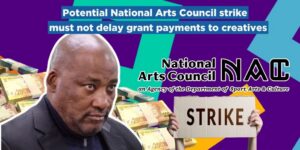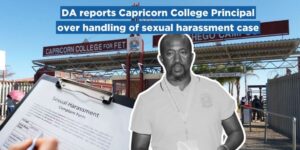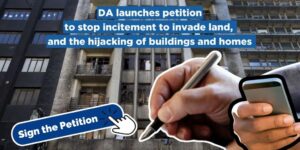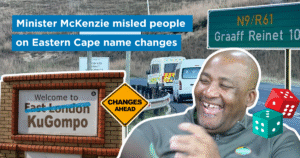This is turning out to be an important week for inter-party cooperation in South Africa. In August, the DA was one of the parties involved in the formation of the Multi-Party Charter for South Africa at the same location in Kempton Park where the Codesa negotiations for our country’s transition to democracy took place in the early 1990s. Thirty years later, South Africa stands on the cusp of its next great transition, this time away from ANC domination and misrule.
Three developments this week have generated renewed momentum for the project of inter-party cooperation.
The first bit of good news is that the ACDP has decided to join the Charter, expanding the number of likeminded member parties to eight. The DA, alongside other party leaders, has consistently engaged with the ACDP over the previous months to answer their questions about the project, and it is pleasing that they have now decided to join the quest to provide a credible alternative that, collectively, can win next year’s election.
The second boost to the opposition alternative came in the form of a study tour by party leaders to Germany. The trip has allowed us to dive more deeply into the nuance and complexities of inter-party cooperation. This includes issues such as different coalition configurations across regions based on differing election results, the interaction between diverse regional coalitions and a national coalition government, as well as the delicate balance involved in campaigning as individual parties while not losing sight of the need for cooperation after an election.
Thinking through these tough issues – which often get lost in the fray of day-to-day politics – alongside fellow party leaders has been an invaluable exercise that has also helped us forge closer personal bonds.
It has been particularly useful to interrogate these issues as observers rather than as active participants. The fact that we are all looking objectively at the German experience has helped us to reflect more openly on the lessons for us in South Africa. Even though our country may be relatively new to the world of coalition politics, is has also been comforting to realise that South African political parties are not alone in navigating complex and sometimes stormy waters as we chart a course to liberate our country from ANC misrule.
The third encouraging development takes places today in the shape of a broad range of civil society organisations that have come together under the umbrella of the #Convergance4SA summit. These different civil society organisations have gathered around one table to explore ways of cooperating and coordinating in an effort to mobilise voters to register and vote for change at next year’s election.
I am delighted by this development, which promises to galvanise even more sections of our society into united action. The DA’s commitment to converging with our partners in the Multi-Party Charter is based on precisely the same logic as #Convergance4SA, namely that now is the time for us all to work together to replace the ANC with a new government next year that can rescue South Africa.
We have not seen this level of united cooperation at both the level of politics and civil society since 1994. It bodes very well for next year’s crucial election.
I wish the participants at #Convergance4SA well, and offer the DA’s full support to this important process. I am convinced that if civil society and opposition parties spend the coming months working to get every voter who yearns for change to register and vote next year, we will sweep the ANC from power and rescue our country.
In fact, the full activation of civil society to help us extend the reach of a message of change represents the next frontier in providing a credible alternative that can unseat the ANC. The time is ripe for more active engagement between parties and civil society organisations committed to bringing about political change.
The work is by no means done. We still have a way to go to persuade enough voters that a unified opposition can unseat the ANC and keep the EFF out of power at next year’s election. But we are making steady and sustained progress, as exemplified by more parties joining the Charter, the sincere commitment of different party leaders to learn from the example of other countries, and a reinvigorated civil society preparing to play its unique role in bringing about the change our country so desperately needs.
In April, from the floor of the DA’s Federal Congress, I committed my party to “initiate a process to form a pre-election Moonshot Pact with likeminded political parties, civil society organisations and civic movements to defeat the ANC, to keep the EFF out, and to inaugurate a new national opposition coalition government.”
Six months later, we have made undeniable progress. For the DA, the next frontier of this project must be to link hands with a reinvigorated civil society that will play a crucial role in ensuring that millions more citizens register and vote in 2024. By standing together – as political parties, as civil society, and indeed as citizens – we will rescue South Africa.




